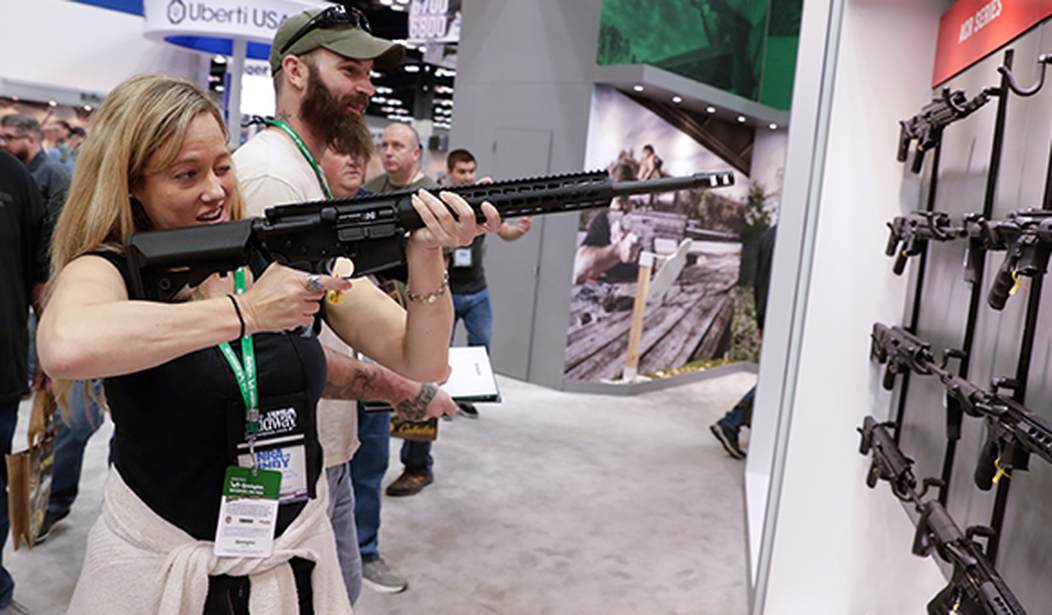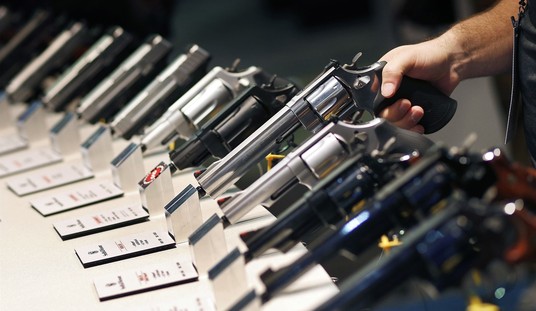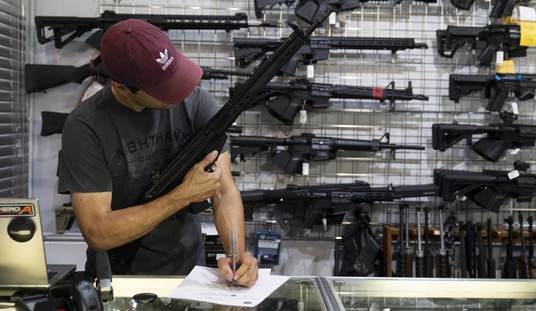Illinois Attorney General Kwame Raoul wasted little time in appealing Judge Stephen McGlynn's decision striking down the state's ban on so-called assault weapons and large-capacity magazines, filing notice with the Seventh Circuit Court of Appeals just hours after McGlynn's decision was released on Friday afternoon.
McGlynn stayed his decision for 30 days to allow for Raoul's appeal, so for now the prohibitions remain in effect. A three-judge panel on the Seventh Circuit previously indicated in a 2-1 decision that, in its view, the bans pass constitutional muster, but it's unclear whether that same panel will hear Raoul's appeal this time around. The 2nd Amendment Law Center also noted in an email to supporters over the weekend that one of the judges on that earlier panel has since retired, so there's a legitimate chance that the plaintiffs will prevail on appeal.
McGlynn's 168-page decision was a thorough dismantling of the state's argument that AR-15s and other semi-automatic rifles and shotguns are "like" machine guns and therefore fall beyond the Second Amendment's protections. As the 2ALC described in its email, McGlynn made it clear that there's a fundamental difference between the select-fire rifles used by the military and the tens of millions of semi-automatic rifles legally possessed by civilians, no matter how similar they are in appearance.
Calling the AR-15 the “Rorschach test of America’s gun debate”, Judge McGlynn first explained why it and similar banned firearms and their magazines are undoubtedly “bearable arms” within the scope of the Second Amendment because they are weapons that “an individual carries for the purpose of being armed and ready for offensive or defensive action in a case of conflict with another person.” They are not dangerous because unlike machine guns, they are arms that “a typical operator cannot reasonably control to neutralize discrete, identified aggressors…it is the lack of the ability to discriminately control the arm and its discharged projectiles that makes it dangerous, not its rate of fire.” Nor are they unusual, because they are not designed to inflict “cruel, brutal, or inhumane suffering on a person.”
Perhaps most interestingly, Judge McGlynn eschewed any ownership data in the common use discussion (though he did note that even the State’s own expert admitted millions of Americans own the banned firearms). Rather, common use encompasses “any bearable rifle, shotgun, or pistol that is capable of semiautomatic fire and is or has been available for purchase, possession, and usage by law-abiding citizens for self-defense, provided that it is not otherwise ‘dangerous and unusual.’ ”
According to McGlynn, even if he were to accept the state's argument that the guns and magazines prohibited under the Protect Illinois Communities Act are suitable for military service, they're still covered by the “dual use” exception the Seventh Circuit previously mentioned in a footnote in the Friedman decision: "private parties have a constitutionally protected right to ‘keep and bear’ them and the military provides them to its forces. In this sense, there is a thumb on the scale in favor of Second Amendment protection.” The Seventh Circuit cited the Beretta M9 service pistol (sold as the Beretta 92F on the civilian market) and the M1014 Joint Service Shotgun (sold as the Benelli M4 shotgun) as examples of "dual use" arms, but as McGlynn points out, the semi-automatic version of a select-fire rifle would also easily fit within the "dual use" exception.
Illinois Gov. J.B. Pritzer slammed McGlynn's decision shortly after it came down, and it was pretty clear that the governor hadn't bothered to actually read the judge's opinion before bloviating to the press.
"The Protect Illinois Communities Act was the result of hundreds of hours of deliberation between legal experts, legislators, and advocates, and it makes Illinois a safer place for everyone," Pritzker said in a statement. "Despite those who value weapons of war more than public safety, this law was enacted to and has protected Illinoisans from the constant fear of being gunned down in places where they ought to feel secure."
It doesn't matter how many hours were spent in deliberation if the outcome still violates the right to keep and bear arms. And despite Pritzer's assertion that the gun and magazine bans have protected residents from the "constant fear of being gunned down", note that the governor didn't say the law actually prevents any violent crimes. Even if PICA makes some people feel safer, that's not a justification to tread on a fundamental civil right.
Illinois still has plenty of violence, even with PICA in place. Most of the firearm-involved violence is committed by individuals using handguns, not so-called assault weapons, and the Supreme Court has already said a ban on handguns is unconstitutional. McGlynn correctly applied the Supreme Court's reasoning in Heller, McDonald, and Bruen to the state's bans on semi-automatic firearms and ammunition magazines and came to the logical conclusion that the arms in question are in common use for lawful purposes like self-defense, and are therefore protected by the Second Amendment. Even better, he used the Seventh Circuit's own language to buttress his argument, which could be tough for the appellate panel to get around when it considers Raoul's appeal going forward.
While the nearly half-dozen lawsuits challenging PICA are moving to the Seventh Circuit, the Supreme Court will be considering granting cert to a lawsuit challenging Maryland's ban on "assault weapons" next month, and McGlynn's decision may also prove persuasive to the justices. If the Court does grant cert in Snope v. Brown we could see a decision released sometime next year, and it's entirely possible that by next Thanksgiving "assault weapon" bans will officially be unconstitutional; not just in Illinois and Maryland, but in all 50 states.









Join the conversation as a VIP Member